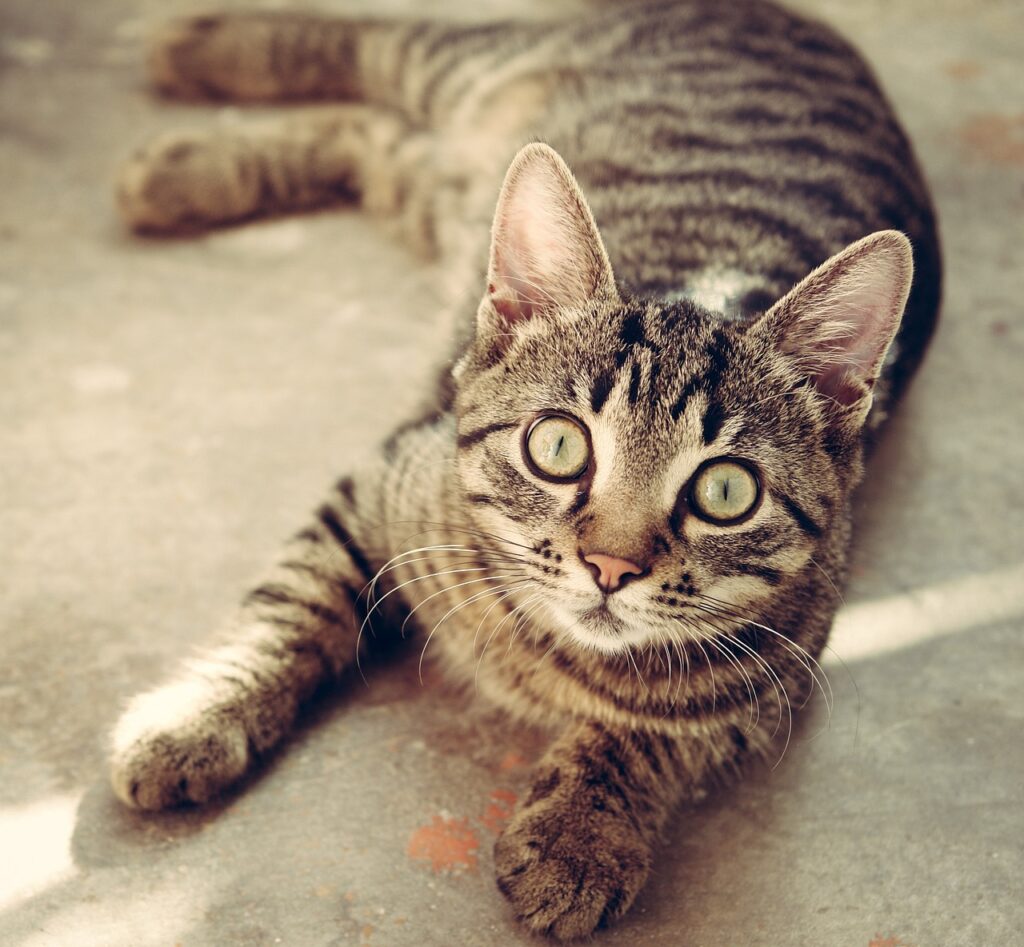Can Cats Eat Coconut? – No, They can’t
No, cats should generally not eat coconut. While coconut isn’t toxic to cats, it isn’t recommended for their diet. Cats are obligate carnivores, meaning they require protein from meat to thrive, and coconut does not provide these essential nutrients. Additionally, coconut contains oils and fats that can cause stomach upset or diarrhea in cats. It is best to keep this tropical treat away from your feline friends.
Can Kittens Eat Coconut?
No, kittens should not eat coconut. Kittens have even more sensitive digestive systems and nutritional needs than adult cats. Their bodies are developing, and it is crucial to adhere to a diet that is formulated specifically for growth and health. Feeding them coconut can disrupt their nutritional balance and may lead to digestive issues. Keep their diet limited to high-quality kitten food recommended by your vet.
Things to consider when feeding coconut to kittens?
It’s best to avoid feeding coconut to kittens altogether. Their digestive systems are not as capable of processing non-meat foods. Kittens require a diet rich in proteins and certain fats that are vital for their growth and health which coconut cannot provide. If a kitten inadvertently ingests coconut, monitor for any signs of indigestion or allergic reactions and consult with a veterinarian if any concerns arise.
Nutritional Benefits of Coconut for Cats – Why Cats can have Coconut
1
It’s important to note that while there are some nutritious aspects of coconut for humans, these benefits don’t offer much for cats. Cats’ nutritional needs are vastly different from ours and coconut does not satisfy their primary dietary requirements.
2
Although coconut oil has been touted for its potential to improve skin and coat condition in pets, there’s limited scientific evidence supporting this for cats. If considering using coconut oil for topical uses, it should be done under the guidance of a vet.
3
Coconut water may provide hydration and electrolytes, but it also contains sugars which cats cannot metabolize effectively. Water remains the best source of hydration for cats.
4
Coconut meat does supply dietary fiber, which may aid in digestion. However, cats do not require a large amount of fiber, and excess can lead to gastrointestinal upset.
5
There are trace minerals and vitamins in coconut meat such as iron, potassium, and zinc. Yet, the amounts are not significant enough to make a real difference in a cat’s diet, which should be tightly regulated based on their species-specific needs.
Potential Allergies: Can Cats Be Allergic to Coconut?
Yes, cats can be allergic to coconut. While not common, allergies can occur and may manifest in various ways. If you suspect your cat is allergic to coconut, avoid giving it to them entirely and consult with your vet.
Symptoms of Coconut Allergies in Cats
- Itchy skin : If a cat is allergic to coconut, they might scratch more than usual or you might notice red, irritated skin.
- Gastrointestinal upset : Symptoms such as vomiting or diarrhea may occur if a cat is allergic to coconut.
- Respiratory issues : Keep an eye out for sneezing or coughing which can also be signs of an allergic reaction to coconut.
What to Do If Your Cat Shows Symptoms?
- Immediate removal of coconut: Stop feeding your cat any food items containing coconut.
- Consult a veterinarian: They can provide a proper diagnosis and treatment plan.
- Monitor closely: Watch for any further symptoms and report them to your vet.
Recommended Amount: How Much Coconut Can a Cat Consume?
Cats should really not consume coconut in their diet. If they happen to ingest a small amount accidentally, it is unlikely to be harmful, but purposely feeding coconut is not recommended. There are no established safe quantities for coconut in a cat’s diet, as it does not contribute to their nutritional requirements.
Things to Consider When Feeding Coconut to Cats
Considering the lack of necessity and potential for digestive upset, it’s best to steer clear of sharing coconut with your cat. Their dietary needs should be met with high-quality cat food and occasional meat-based treats.
How to Feed Coconut to Cats: A Quick Guide
Cats do not need coconut in their diet, and it is not generally recommended to feed them coconut due to their specific dietary needs and potential for adverse reactions. If you’re seeking to treat your cat, look for healthy alternatives that are safe and beneficial for felines.
Recipe 1 Name
As coconut isn’t advised for cat consumption, a recipe isn’t applicable here. Instead, seek out vet-approved treats that are designed with cat health in mind.
Recipe 2 Name
Again, it’s important to reiterate that coconut is not a suitable food for cats. Opt for alternatives like small portions of cooked chicken or fish, which are much more appropriate for their diet.
Recipe 3 Name
Instead of trying to incorporate coconut into your cat’s diet, turn to treats and foods that meet their nutritional needs and are known to be safe for cats to enjoy.
Conclusion
In conclusion, coconuts are best left to the humans. Cats’ diets are specialized and should consist of high-quality cat food that provides the protein and nutrients they require. If you’re looking to add something special to your cat’s routine, consult your veterinarian for safe options that can contribute to their well-being without the risks associated with coconut.



